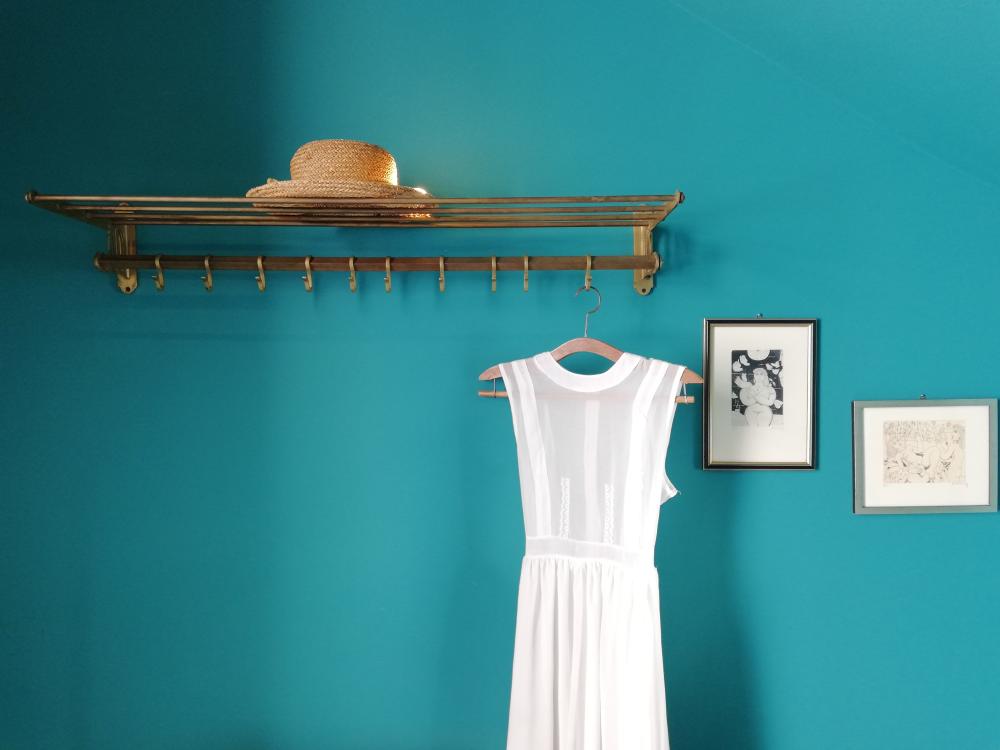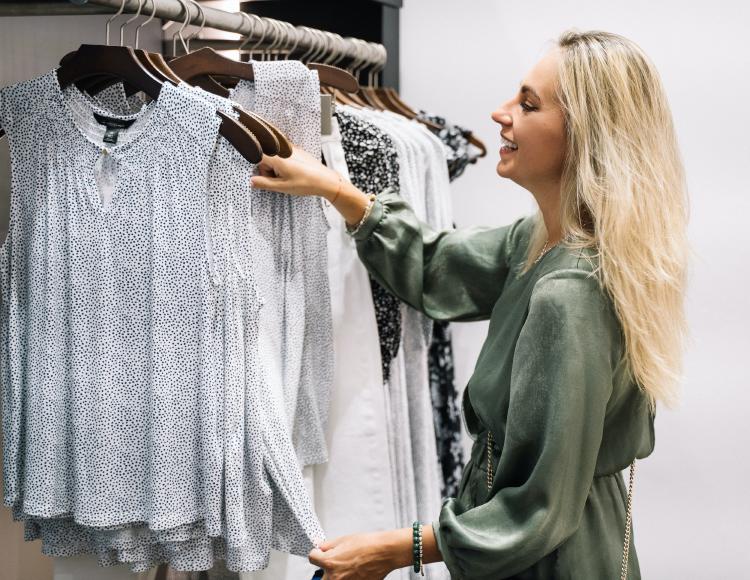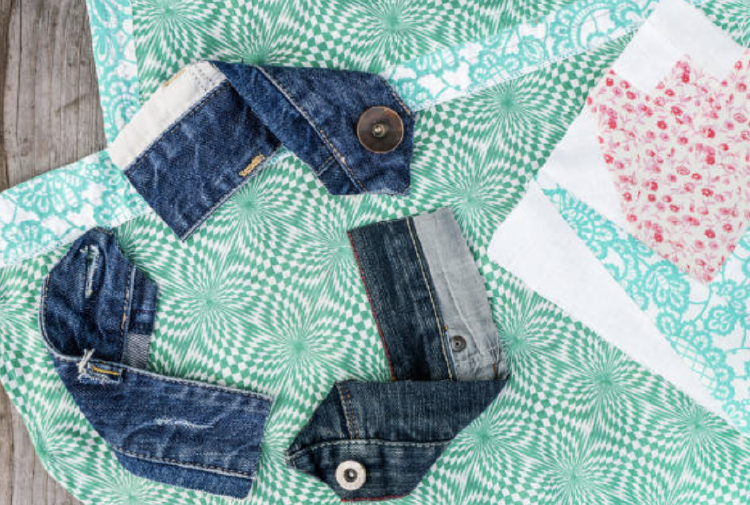
The fashion industry is responsible for being the second greatest polluter of water in the world. Apart from the big numbers of pollution, there are other questionable things behind the curtain regarding work hours, salary and good working conditions. Thanks to the latest environmental protests most of the population started to analyze and question their place in the world of fashion. They started a new era: Conscious Fashion & Ethical Consumerism came to break old practices inside the fashion world. Let´s find out their meaning in this article and wait for a surprise at the end: you will have the chance to discover ten fashion sustainable brands to purchase only what you need for your closet ;)
Conscious fashion involves different concepts: the processes that the clothes undergo in their production, the people involved in that production, their labor conditions, the origin of the fabrics used and more. In the Cambridge dictionary the word conscious means: "awake, thinking, and knowing what is happening around you". To summarize the concept of conscious fashion in a few words, these are the questions I would choose: Where did this jean come from? Who made it? Is a good quality fabric? Did animals suffered because of this fabric? Is it good for my skin? Do I need it or is it just a whim? Those are the things that we do not take into account when buying a shirt for example.
Conscious fashion can be also known as sustainable fashion. As it is mentioned in the article Sustainable Fashion 101: All You Need to Know & A Complete Guide, "for the fashion industry to stop being as damaging as it is, there needs to be a change in every step of the supply chain".
The supply chain in the fashion industry represents the process involved in the production of clothes such as the sourcing of raw materials, the people who tailor the clothes, the factories where they work at, their working conditions and the distribution network of those clothes to the final consumers.
The Rana Plaza tragedy that took place in Bangladesh in 2013 brought to the spotlight the awful working conditions of the garment workers.
They tend to work in factories that do not abide by the safety norms, they usually work more hours than the ones allowed by the "International Labour Law" and their payment is not fair at all. This whole problem is a consequence of fast fashion: big brands that want to produce clothes at a fast pace under irregular conditions. According to the writer of Sustainable Fashion 101: All You Need to Know & A Complete Guide "An item of clothing to be defined as sustainable, an item of clothing, shoes, or accessories need to be manufactured, distributed and marketed respecting sustainable and social-friendly practices". Sustainable fashion promotes the preservation of the planet´s natural resources, keep in mind that fashion is the second greatest polluter of water in the world.

Conscious fashion is closely related to ethical consumerism. "Ethical fashion is a term used to describe ethical fashion design, production, retail, and consumption". The difference between sustainable fashion and ethical consumerism is that the first one focuses on the environmental impact of fashion production in the planet. While ethical consumerism comprises the well being of fashion workers and the supply chain.
"To be more precise garment workers face inhumane work conditions, mostly in South East Asia. There is child labor, and adult exploitation, poor pay, and awful and unhygienic work conditions".
The raw materials involved in the production of clothes can be counter-productive to our selves: "For example, cotton is the main fabric used in fashion but needs a lot of pesticides to keep it growing, and these chemicals can be dangerous not only for the environment and for the people who live near that areas".
When we find clothes that do not fit us anymore or we just simply don´t feel identified wearing them the best thing to do is recycling and giving those clothes to someone who needs it. The writer of Sustainable Fashion 101: All You Need to Know & A Complete Guide states that "75% of fashion supply chain material ends up in a landfill. And as those low-cost fast fashion garments have low quality, they will break, and then we will toss them away, transforming them into trash".
As the writer of Sustainable Fashion 101: All You Need to Know & A Complete Guide explains, sustainable fashion and ethical consumerism complement each other. Ethical consumerism also encompasses an ethical decision when buying new clothes. Consumerism is all over the place in our lives, we spend most of our day thinking what do we need to buy in the short term or in the long term. We are also constantly surrounded by advertisements on tv and on the street that keep telling us with a convinced tone or voice or letter that x product is essential in our lives. The same happens with clothes.
It is a brand based in California USA. They started as a vintage shop but the more they immerse themselves into the slow fashion world the more they wanted to be in it. One of their goals is "making effortless silhouettes that celebrate the feminine figure". In their website you can find pictures of the garment workers of the factory located at LA. Reformation cares about their workers and want to deliver sustainable clothes made with low-impact materials to their costumers.

Quince is another sustainable brand that promotes conscious fashion. They are partnered with factories who are committed to responsible production. Fair work practices is everything for them. Apart from promoting conscious fashion they also promote ethical consumerism. That´s why they produce clothes known as "essential" for every season of the year. "High quality, worn and used for a long time" are words that describe them. Within their clothes we can find cashmere pullovers, organic linen pants, ultra-soft performance jogger and more.
Boden is a renowned fashion global company with more than thirteen retailers over the world. The whole family works at the company. Their slogan is "Boden isn´t about fast fashion and fads. It never was". Originality and attention to detail are the things that distinguish the brands from others in the market. Sustainability and ethical consumerism: Boden promotes making informed choices when buying clothes. He claims that with his clothes you can make memories that will last forever. 60% of their cotton comes from sustainable sources and they have saved 387 million liters of water in 2020.
This brand creates incredible clothes for all kind of women around the world. They partner with business who share the same goal: sustainability and originality. The change in the fashion industry is happening right now: conscious and ethical consumerism are possible. Denim is one of the dirtiest items to produce, but Able works with a vendor who recycles 100% of the water used in their production. You can buy jewelry, bags and clothes in this brand.

The name of this brand denotes fair fashion practices and it is what happens in real life. Certifications are everything when wondering to which sustainable brand you will buy clothes. Fair Indigo has more than three certifications: organic cotton certification (their cotton is grown on two family farms in Peru, Safe dyes certification (they use the most safe dyes available in the market) and better business bureau.
Based in California. It is certified organic cotton, they use recycled packaging and of course they use sustainable materials to create clothes. It's a brand with surf and chill vibes. Here you will find your jack of all trades for the whole summer! The brand keeps a low environmental footprint and it uses recycled paper when shipping worldwide. I strongly recommend adding this brand to your catalog if you live in a hot weather place :)
If you want to create your capsule wardrobe then this brand is perfect for you. Matching basic clothes with other vintage ones can result in an incredible outfit for the day or the night. It is a global brand that uses high quality materials to create their unique pieces of clothes. I recommend this brand if you have a minimalist lifestyle.
In this brand you will find basics for every season and every occasion in life. Apart from being sustainable, I believe that the best thing of it are the inclusive size options. The brand works different from others. In this case you need to order the clothes you want so that your piece is one of a kind. With that policy, they reduce waste and the process of buying is personalized.
It is based in Canada! These clothes are perfect for travelers because they can be adapted to any situation in life. They use eco-friendly fabrics that do not pollute the environment and does not irritate your skin. Here you can find those basics needed for trips that begin in summer and end in winter season :)
Sotela is one of the few brands that offers clothes for everyone. They truly understand that women´s body undergoes different emotional and physical changes. All the clothes are adaptable and the sizes are diverse. This brand also works with the "made-to-order policy".
We finally are at the end of this informative review about Conscious Fashion & Ethical Consumerism. I hope that by now you have a big picture of the situation in the fashion world. Remember! Small changes represent big changes to the world. Start buying sustainable clothes and stop with fast fashion!
You may be interested at: How to incorporate Slow Fashion Items into Your Daily Outfits